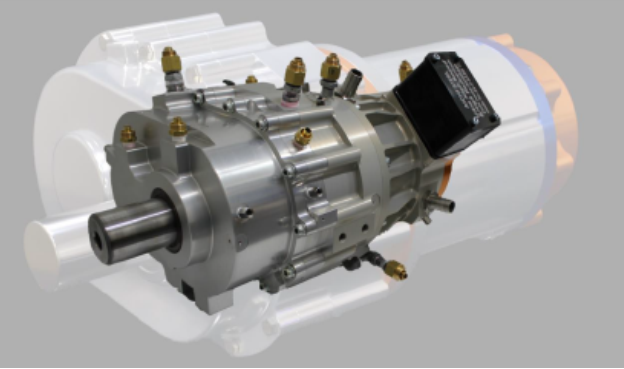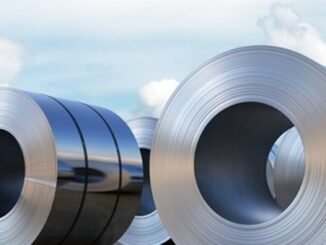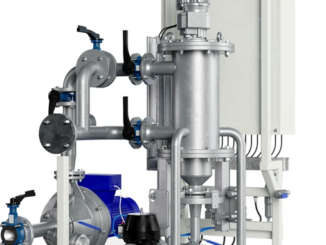
Using its molded MagFine alloy, Aichi Steel reports that it has developed in collaboration with Tohoku University an experimental e-axle that is 40% lighter and smaller than conventional designs. It combines a newly developed compact high-speed reducer with a compact and lightweight 34,000 rpm motor. For the first time, says the company, it has succeeded in proofing the technology of a high-speed, high-reduction next-generation electric axle with high-speed rotation and high deceleration that contributes to weight reduction.
The development is the result of research on the practical application of electric axles that are both compact and lightweight with an excellent power consumption rate and that contributes to a significant reduction in the use of rare earth elements such as Neodymium, electrical steel sheets, and copper. The axle integrates the speed reducer with built-in high-strength, high-precision gears and shaft with a compact and lightweight high-speed rotation motor that uses Aichi’s dysprosium-free bonded magnetic material, MagFine.
In the proofs using the high-speed reducer, the reduction ratio of 21.8 achieved more than twice the ratio of a standard electric axle in a compact size while attaining the torque necessary for running an electric vehicle. High-speed rotation of the motor was achieved by taking advantage of the features of MagFine alloy which exhibits high magnetic force, high electrical resistivity and is molded into the rotor core. The performance of the magnet powder has been further improved through joint development with Tohoku University, resulting in a 50% reduction compared to standard motors, a reduction of 10% compared to Aichi’s previously developed products, while maintaining 34,000 rotations per minute to enable a smaller and lighter motor.
Excellent recyclability is also a feature, notes the company, as a magnetic particle rate recovery of 90% was reached in experiments. Now, researchers at Aichi and Tohoku University are working on refining the technologies involved toward commercialization. See www.aichi-steel.co.jp.



